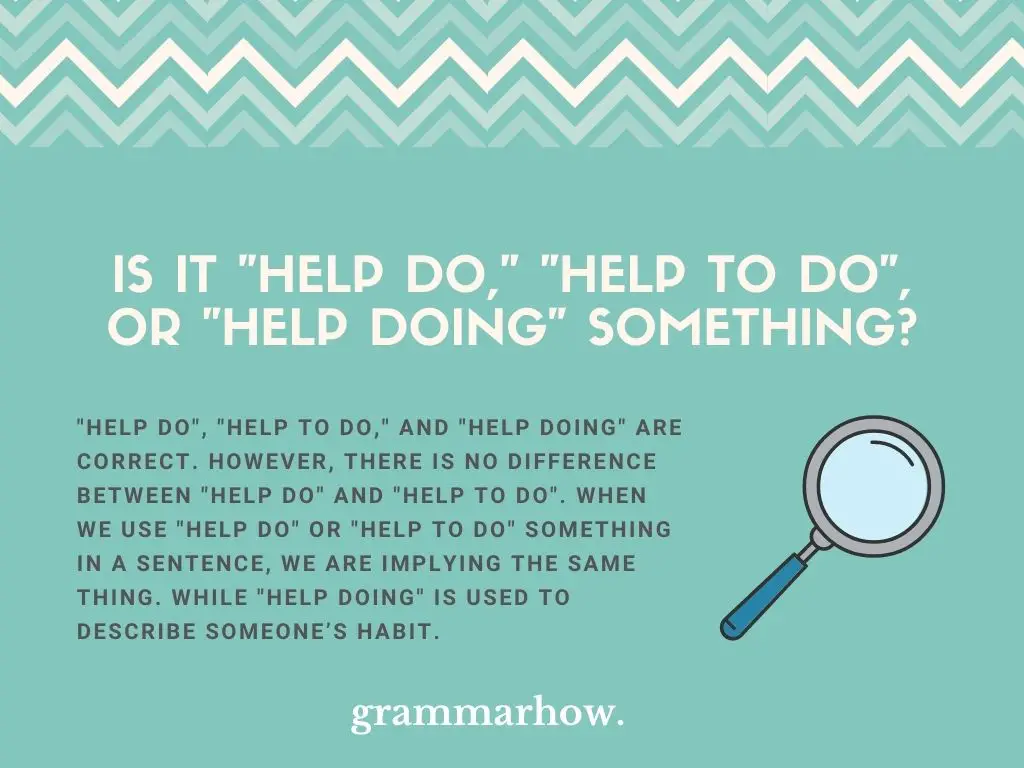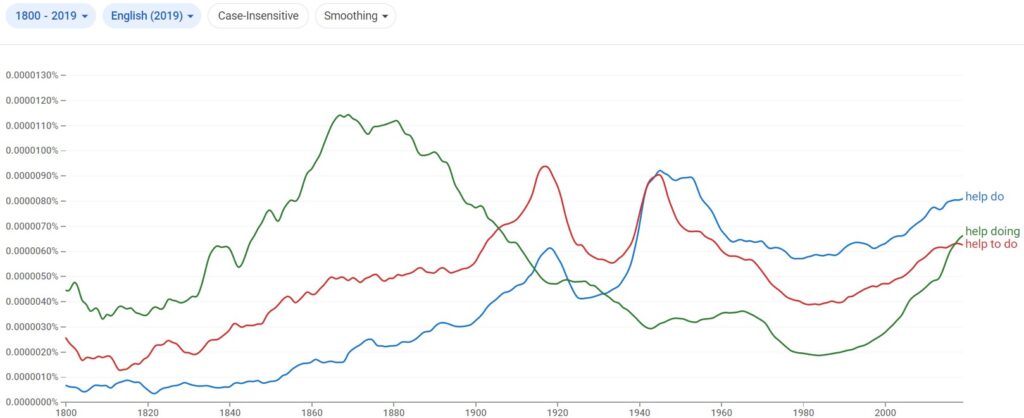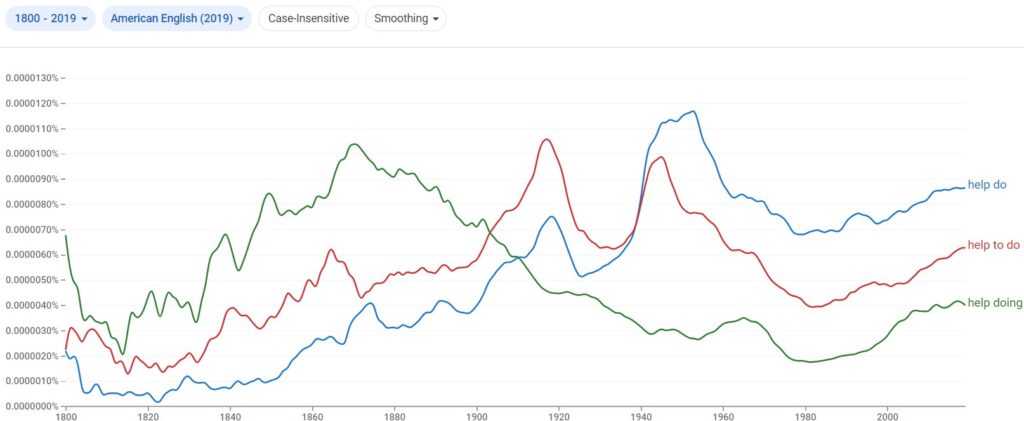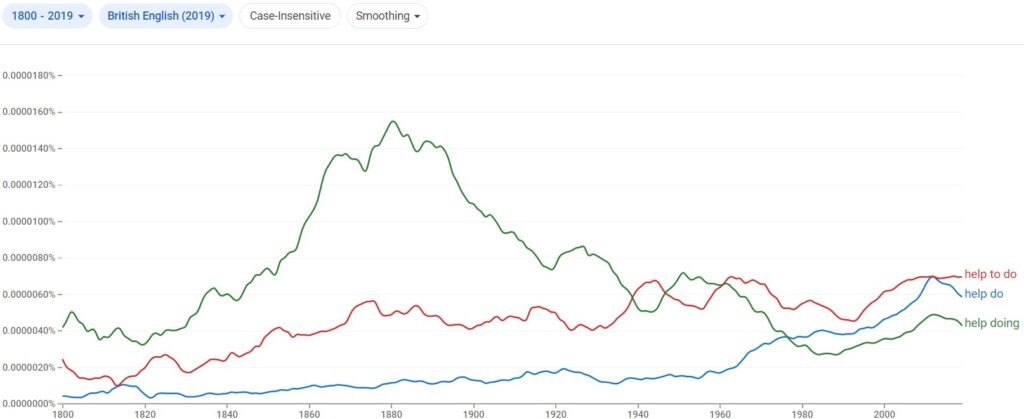There are several ways to say “help” in English – “help do,” “help to do,” and “help doing.” So, which one is the right way to say it? The answer is: it depends. This article will discuss the different meanings of these phrases and when you should use each one.
Is It “Help Do,” “Help To Do”, Or “Help Doing” Something?
“Help do”, “help to do,” and “help doing” are correct. However, there is no difference between “help do” and “help to do”. When we use “help do” or “help to do” something in a sentence, we are implying the same thing. While “help doing” is used to describe someone’s habit.

For instance, when someone says “I helped him do his homework” another person says, “I helped him to do his homework”. They are both saying the same thing.
When the phrase “help doing” something is used in a sentence, it is usually used to depict the habit of an individual.
What Does “Help Do” Something Mean?
The phrase “help do” is a correct expression that means to assist and is often used in a sentence that requires action, especially informal sentences. For example, if you want your friend to assist you in something, you can say: “Please, can you help do my child’s homework”?
“Help do” is, however, also used in formal sentences but not as much as it is used in informal sentences.
Here are a few examples to help you understand how to use the term in a sentence.
- I can help do the job effectively.
- Adam will help do the dishes.
- I am going to the market later. Would you help do the unboxing of the items I would be getting from the market?
- My job is done here; kindly help do the rest of the work.
- Are you home? I’m coming over to help do the lifting of the heavy items.
Note: The verb “do” can be easily replaced with the word “with”.
What Does “Help To Do” Mean?
The phrase “help to do” means to act on something. To assist someone with a job or to offer assistance. This statement could be used without the word “to” because, without it, the message is still adequately passed. However, it is a variant of “help do”.
Here are a few examples to guide you on how to use the phrase in a conversation.
- I can help to do your research.
- He will help to do the guestlist for her party.
- It helps to do your own cooking as this saves you from spending a lot of money eating out.
- Hey, Daniel, can you help Joe to do his laundry?
- Aurora can help to do the furnishing and the cleaning of the house.
Note that these sentences can do without the word “to,” but the word is added as a way of giving a directive to the entire meaning of the sentence.
What Does “Help Doing” Mean?
“Help doing” means an individual’s habit. It means something a person is already used to and can’t seem to stop doing. “Help doing” cannot be used expressively like the other phrases used in this article. It can only be used idiomatically to express the state of an individual.
The following sentence examples will provide insight on how to use this phrase in a sentence:
- He can’t help feeling overwhelmed with everything that has happened.
- She couldn’t help but fall deeply in love with him.
- He can’t help but constantly think of ways to make her the happiest girlfriend.
- I am so sorry I’m late. I couldn’t help it; I had to take Liam to school before coming.
- She is always so lousy with her outfit. I bet she can’t help being that way.
The examples above depict how we cannot use “help doing” in a sentence. It is wrong to do so. For instance, you can’t say, “she couldn’t help doing but fall in love with him” or “I am so sorry I’m late. I couldn’t help doing it”. It does not even sound appealing to the ears.
Is “Help Do”, “Help To Do”, Or “Help Doing” Used The Most?
According to this Google Ngram Viewer graph, “help do” is the most used phrase of all the three phrases examined in this article. The phrase “help do” is mostly used in informal conversations, while “help to do” is more acceptable in a formal conversation.

“Help Do”, “Help To Do”, And “Help Doing” – Usage in The UK And The US
In American English, “help do” is mostly used, followed closely by “help to do”. “Help doing” is considered archaic in American English as this phrase was commonly used in the 1890s, as illustrated in the Google Ngram Viewer.

According to this Google Ngram Viewer graph, in British English, the phrase “help to do” is commonly used. Followed by “help do”. “Help doing” is also used, but it is less used due to its grammatical inaccuracy. The phrase “help doing” does not also agree with the subject of a sentence.

Is It Ever Correct To Use “Help In Doing” Something?
The phrase “help in doing” which means to assist someone with something, is grammatically correct. For example, you can say “Chris is going to help in arranging the chairs”. Also note that, the preposition “in” can be interchanged with the word “with,” and the meaning will still remain the same.
Here are a few examples to show you how it can be used:
- Mommy is going to help in doing the dishes and setting the table for dinner.
- Adams is going to help in parking daddy’s car.
- The woman at the store will help in doing the packaging.
You may also like: “Try To Do” Or “Try Doing” – Difference (With Examples)
